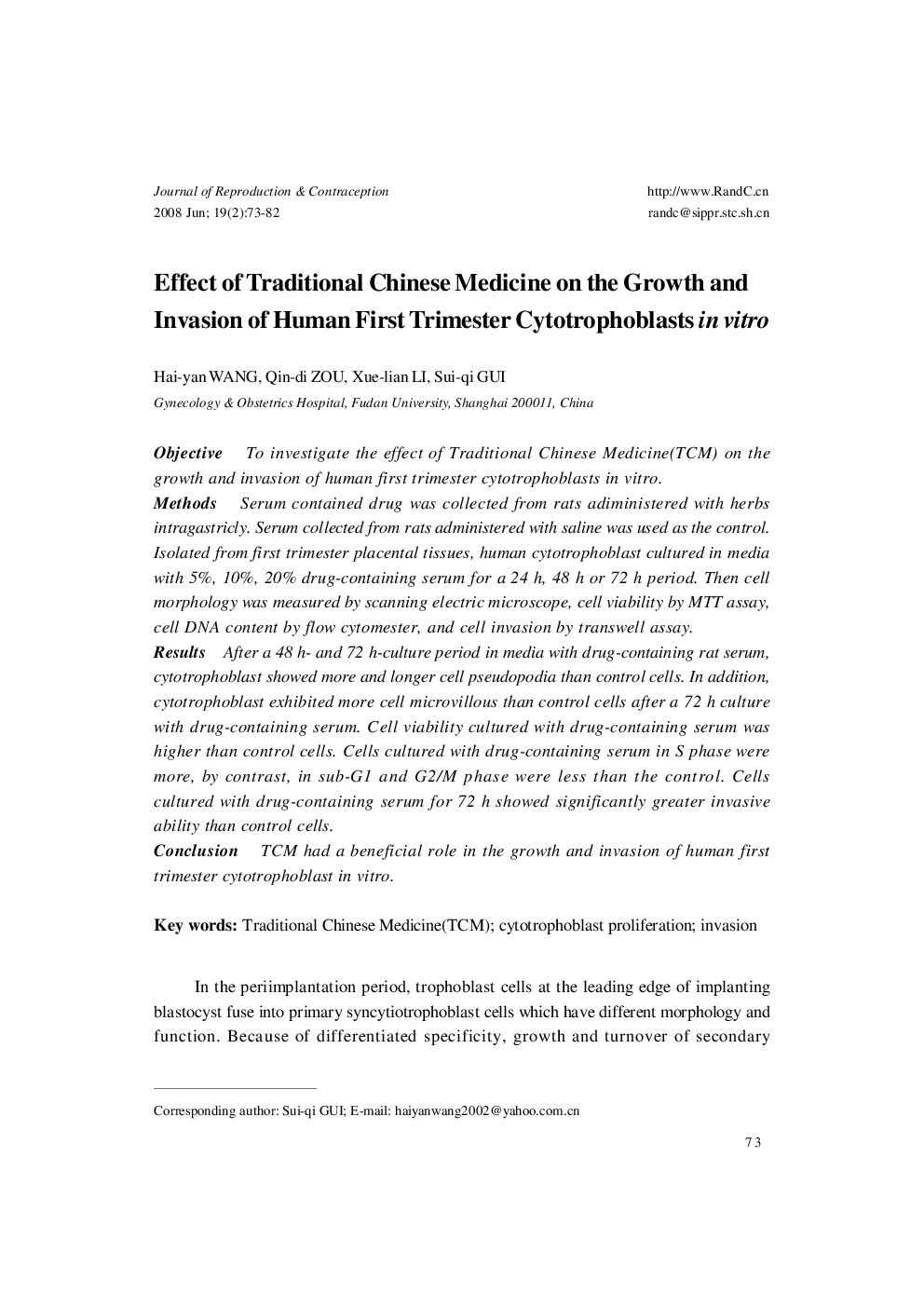| Article ID | Journal | Published Year | Pages | File Type |
|---|---|---|---|---|
| 3964090 | Journal of Reproduction and Contraception | 2008 | 10 Pages |
ObjectiveTo investigate the effect of Traditional Chinese Medicine(TCM) on the growth and invasion of human first trimester cytotrophoblasts in vitro.MethodsSerum contained drug was collected from rats adiministered with herbs intragastricly. Serum collected from rats administered with saline was used as the control. Isolated from first trimester placental tissues, human cytotrophoblast cultured in media with 5%, 10%, 20% drug-containing serum for a 24 h, 48 h or 72 h period. Then cell morphology was measured by scanning electric microscope, cell viability by MTT assay, cell DNA content by flow cytomester, and cell invasion by transwell assay.ResultsAfter a 48 h- and 72 h-culture period in media with drug-containing rat serum, cytotrophoblast showed more and longer cell pseudopodia than control cells. In addition, cytotrophoblast exhibited more cell microvillous than control cells after a 72 h culture with drug-containing serum. Cell viability cultured with drug-containing serum was higher than control cells. Cells cultured with drug-containing serum in S phase were more, by contrast, in sub-G1 and G2/M phase were less than the control. Cells cultured with drug-containing serum for 72 h showed significantly greater invasive ability than control cells.ConclusionTCM had a beneficial role in the growth and invasion of human first trimester cytotrophoblast in vitro.
